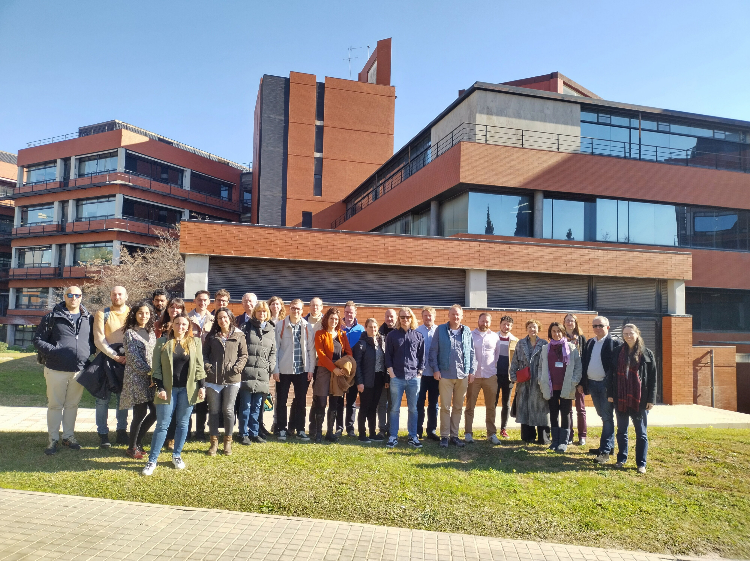
The European project VALHALLA, coordinated from the University of Valencia by Professor Henk Bolink, held its kick-off meeting on January 30th at the facilities of the Institute of Molecular Science (ICMol). Over the next three years and with the participation of universities, research groups and companies from eight European countries, Valhalla is aligned with the objective of the European Commission to develop new disruptive technologies in renewable energies that contribute to achieving climate neutrality by 2050.
Supported by Horizon Europe Research and Innovation Actions program, VALHALLA seeks to develop perovskite-based solar modules that are stable, solvent-free and thus contribute to generating clean electricity. The aim is to provide technologies that are environmentally, socially and economically acceptable, as well as contributing to strengthening European industry.
VALHALLA aims to achieve perovskite solar cells and modules with energy conversion efficiencies above 26 % (modules > 23 %) and extrapolated lifetimes exceeding 25 years, always from an eco-design approach. The project will employ perovskite deposition free of harmful solvents, optimized use of materials, circularity, recyclability, scalable and low-cost manufacturing processes, to create an economically viable path to European commercialization of this sustainable technology.
One of VALHALLA's missions is to aggregate critical expertise in different technological competencies in order to redesign and realize a highly efficient, stable, scalable, sustainable and cost-effective perovskite photovoltaic technology.
During the opening session of the project, consortium members had the opportunity to discover the University's laboratories where part of the work will be carried out. Renewable energy technologies are needed to replace costly and polluting fossil fuels with energy.
The VALHALLA consortium is coordinated by the Universitat de València. Specifically by professor Henk Bloink group of leader of the Molecular Optoelectronic Devices (MOED) Team. The Consortium brings together a balanced combination of some of the leading research institutions in the European Union, such as the University of Oxford (UK); Kaunas University of Technology (Lithuania); University of Liège (Belgium); University of Groningen (The Netherlands); Consiglio Nazionale delle Ricerche (Italy); Istituto Italiano di Tecnologia (Italy); Technical Research Centre of Finland (Finland) and CSEM (Switzerland).
In addition, the project has a core of very relevant industrial partners such as Enel Green Power and 3SUN (Italy); Ark Metrica LTD (United Kingdom) and the Becquerel Institute (Belgium).

